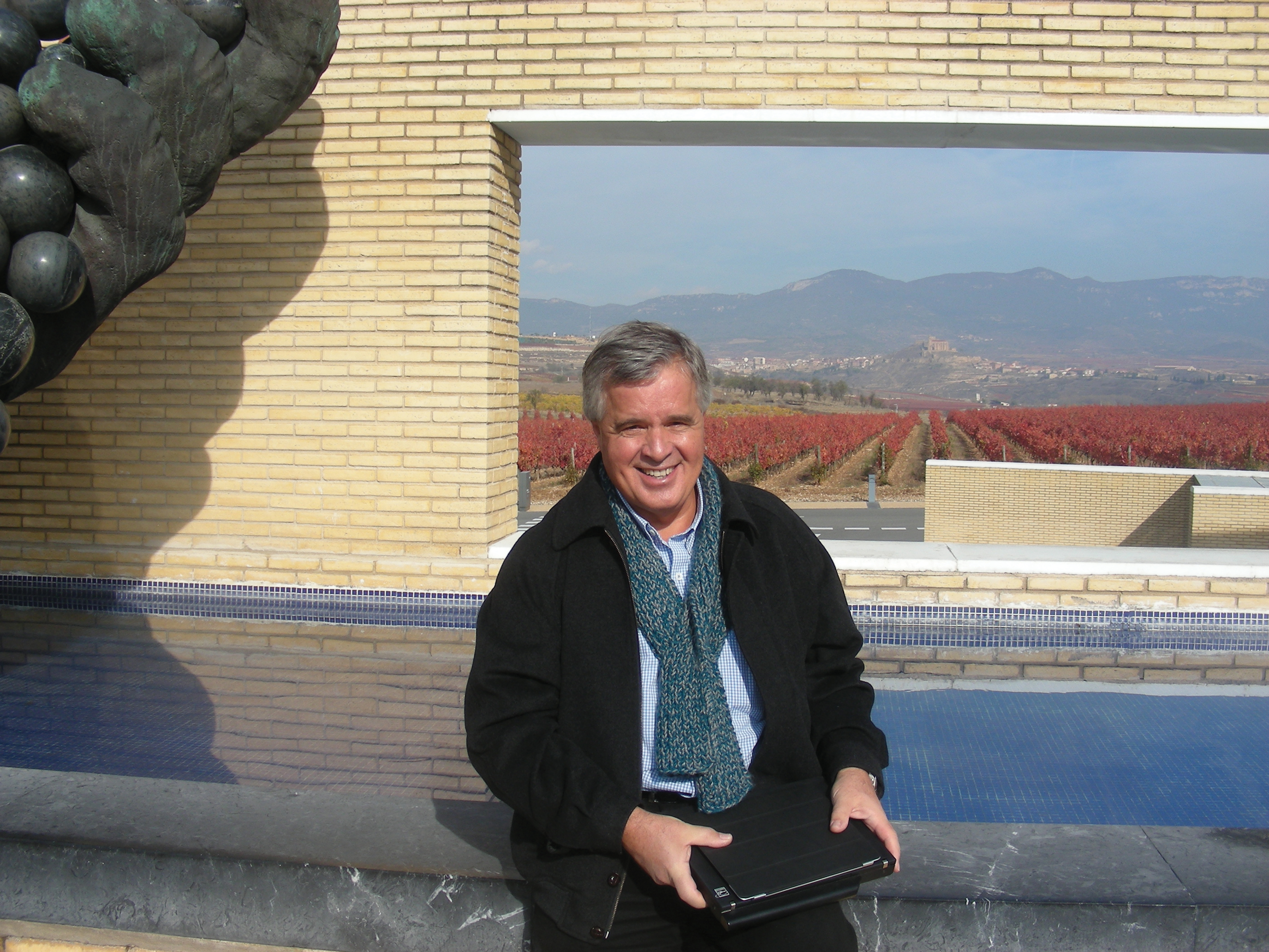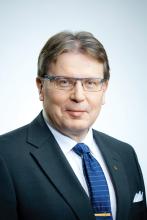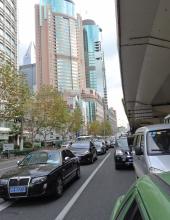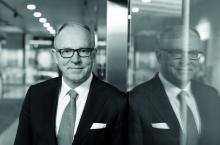
The way that business is conducted in the future will never be the same as in the past. Many companies are already experiencing this, and for Luis Santos, Metso’s senior vice president, EMEA (Europe, Middle East, Africa, CIS) market area, this new situation offers challenges along with many opportunities.
The economic downturn of recent years has seen most operations take a long, hard look at how they operate, and then adapt to the new realities.
And Santos is realistic about the future but he is also ambitious for his company when it comes to finances, products, customers, the environment and health and safety, insisting that in most cases the construction business (and therefore his remit) is proportional to a nation’s gross domestic product (GDP).
“We are a company that received orders of some €3.4 billion in 2012 and we want to reach €5 billion very soon,” says Santos.
“The intention is to have at least 50% on services. We will move from a transactional business to performance solutions.”
While
“Frankly speaking, we are open to joint ventures and acquisitions but if we talk about the construction business we must keep a strong focus on crushing and screening. We are not talking about trucks or hauling. We are not pretending to enter into that business.
“All acquisitions or JVs have to make sense for us to grow and if they do then we will do it.”
Indeed, late last year Metso further strengthened its presence in the fast-growing Chinese construction market through two strategic actions.
It established a joint venture with
Initially the JV will cover the design and manufacture of localised versions of Metso’s Lokotrack series mobile crushers and screens but the
range may be further expanded in the future. The products will be sold under dual branding Metso LiuGong, and the jv company will also promote Metso’s global track-mounted crushing and screening equipment in China.
Metso has acquired 75% of Shaorui Heavy Industries, one of the leading mid-market crushing and screening equipment producers in China. It has an option to purchase the remaining 25% of the company in the future.
And with the Metso showing 11% growth in services net sales in 2012; 13% growth in net sales, and earnings before taxes, depreciation, interest and amortisation (EDITDA) of €684 million, the group, and Santos, feel they are on the right track.
While Santos list Metso’s best performing countries at present as the USA, Russia, China and Norway, others are catching up
“A few years ago I had a couple of priorities in my organisation in terms of business development.
“In 2011 we looked at Russia and the CIS and then in 2012 we turned our attentions to Africa and it is going well, and in 2013 we are looking at the Middle East region, which is the area where I am paying close attention for the coming year in terms of mining and construction.
“The construction market is suffering worldwide for the reasons we all know.
“We have to find the right solutions and the right products for our customers because some of these will disappear.
“The challenges are that despite what the indicators today say there are countries still in crisis such as some in Europe.
“The indicators say the worst is over and we should start to see some growth. Personally I am not expecting any big growth or hope of growth in the next three, four, five years.
“The reason I am saying this is that if I look at the world construction business in terms of aggregates it is about 25 billion tonnes.
“Out of this 25 billion tonnes the EMEA area is most difficult because the European construction market has shrunk from 3.6 billion tonnes in 2007 to 2.8 billion tonnes. Cement came down quite a lot and in certain countries it was dramatically down.
“There is a lot of growth in Africa and the Middle East, and usually the world construction business is proportional to the GDP growth.
“The other countries that are very positive to the construction business are China and India and these are the countries that are taking a huge share of the 25 billion tonnes. For example, 14 billion tonnes is being used in China.
“We must grab as much market share as we can to keep things as they were.
“We have not lost any business in construction in EMEA and have grown since 2007-2008, and we have kept the same volume in Europe as we had in 2008. The recession is there but the market didn’t collapse completely although the whole construction business in Europe is very sick,” says Santos
“In three, four, five years from now I am expecting in the EMEA area, which has been the most difficult, that the 2.8 billion tonnes of aggregates will grow to 3.2 billion tonnes. Then it will be a sustainable business without these big ups and downs. We won’t see 3.6 billion tonnes in the next 5 to 10 years and no-one is planning long term.
“The other challenge is also that business in construction will be very much different than in the past.
“In the past if someone wanted to buy equipment and we had it, we sold it. I don’t believe in this transaction model any more.
“Suppliers now have to come up with solutions that are value selling rather than transactional business.
“For example, trucks today are rented with service included. I believe this will be the case with the construction business within a couple of years which will mean a big change on the crushing and screening equipment side. It is a big change but it will happen. I am prepared and well aware of where to go.”
Metso claims that in terms of construction quarries and aggregates it is much stronger in the EMEA area and less in the Americas where it is stronger in the mining side although it is capturing construction business there as well.
“If we talk about manufacturing facilities of crushing and screening equipment we are in the USA, Brazil, France, South Africa, Czech Republic, China, where we have two facilities, including the recent acquisition, and in India where we have one of our biggest projects, Metso Park. We also have facilities in Australia and New Zealand,” says Santos.
Metso Park, costing an estimated €30 million, is Metso’s single largest greenfield investment, offering a state-of the art facility in Alwar, Rajasthan where it has a land area of 315,092m2 and a factory area of 33,732m2. The three-phase facility started production in March, 2010, and according to Metso paves the way for significant operational and manufacturing presence in the sub-continent that caters to the growing demand for Metso’s products across India and other rapidly growing markets in Asia Pacific.
“We are in most areas and we keep a strong focus in the areas where there is construction development,” says Santos.
“I say again that most of the construction business is related to the GDP growth.
“However, in Africa the infrastructure business is not related to the GDP growth but to the mining industry where minerals have to be exported. This means that infrastructure, such as roads and ports, has to be built to take the products away.
“Out of the 50-plus countries in Africa we will focus on something like 15 of them because they are the ones that will show where we believe there will be strong development.
“This does not mean we will not cover other areas but not with the strong focus as with the 15.”
Looking further at the business, Santos says that it is very much engaged in reducing costs in the company and also, importantly, in the customer base.
“In our business we try to be as competitive as we can which means a close look at how to lower costs.
This does not mean that we will be the lowest cost but we are always looking to improve our profitability.
“On the services business and on the customer side we have developed some tools we can propose to the customers to reduce their costs.
“Operational costs are not only in crushing and advanced systems but are also related to other things such as health and safety and the environment.
“Aligned with that need to produce the best for our customers, we have done lots of work on wear materials by ourselves and with our partners.
“I just hope that the construction business will spotlight a little bit after this deep crisis to develop not only ways to solve the problems with our customers but new products in terms of problems, operational costs and maintenance, with a very high level of health and safety.
“Health and safety is a big focus in our organisation, and we have done a big development in the last three years.
“In 2008-09 in mining construction activity we had an average of 15-20 lost time incidents (LTIs) per one million hours and in 2012 we reduced this to 5.9 LTIs per one million hours worked. In 2015 we want this to be below two. Zero is always our target.”
Meanwhile, as the huge
“If anyone has to be blamed for not being at these events it is me. We have not been at bauma or
“It is not a question of savings.
We like to spend the money on different initiatives and we like to be with our customers over a period of time. We want to
talk serious business and how we can help our customers and they can help us.
“What we have done is have special events where we invite a group of 40-50 customers from various countries and we spend two days or so together and take time to listen to them.”








